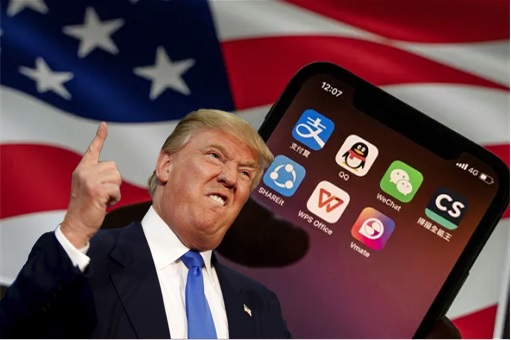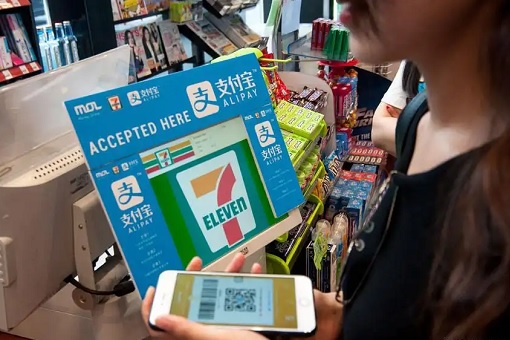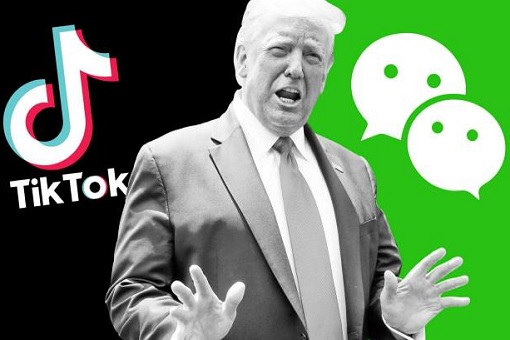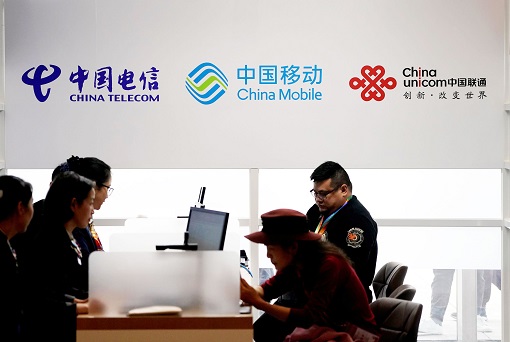Under the pretext of protecting national security, outgoing President Donald Trump has decided to make the U.S.-China relationship messier for President-elect Joe Biden by banning more Chinese apps. Mr Trump on Tuesday (Jan 5) signed an executive order banning transactions with eight more Chinese software applications.
With just over 2 weeks before Biden takes office, the ban on Chinese apps, including popular payments platform Alipay and WeChat Pay, was taken to escalate tensions with Beijing. The order, which takes effect in 45 days, argues that the United States must take “aggressive action“ against the developers of Chinese software applications to protect national security.
President Trump’s executive order says that “by accessing personal electronic devices such as smartphones, tablets, and computers, Chinese connected software applications can access and capture vast swaths of information from users, including sensitive personally identifiable information and private information.”

In addition to Alipay and WeChat Pay, other Chinese apps being blacklisted include CamScanner, QQ Wallet, SHAREit, Tencent QQ, VMate, and WPS Office. The executive order claims that the Chinese-developed applications’ data collection “would permit China to track the locations of federal employees and contractors, and build dossiers of personal information.”
But with the order to go effect only in another 45 days – long after Donald Trump’s out of the Oval Office – it would be interesting to see what Biden administration will do. The new president could, of course, revoke the order on the first day of his presidency. However, it would allow Trump to accuse Biden of pro-Beijing, hence putting the POTUS in an awkward position.
According to a U.S. official, despite the 45 days time frame to start banning the Chinese apps, the Commerce Department under the current Trump administration may act tough on China before the January 20 inauguration of Biden. The impact of the latest attacks may be limited though because the majority of users of the affected apps reside in China.

Alipay users, for example, are generally required to possess a bank account in China and a Chinese phone number. But since Nov 2019, tourist to China can finally use Alipay and WeChat Pay after Chinese tech giant Tencent that operates WeChat Pay’s QR code payment systems and Alibaba affiliate Ant Financial launched apps version that support international debit or credit cards.
The blacklisting of the eight Chinese apps would affect Chinese-Americans who travel between the countries or use the services to stay in touch or carry out business with contacts in China. Therefore, this could see the repeat of similar legal challenges faced by Trump administration when the U.S. president signed executive orders in August to block TikTok and WeChat apps.
On 6 August, President Donald Trump issued twin executive orders that would shut down two Chinese apps –

In two separate rulings, judges have questioned the evidence that data from American users is being accessed by the Chinese government harming U.S. national security. In TikTok case, U.S. District Judge Carl Nichols, a Trump appointee, has granted a preliminary injunction that keeps the U.S. Commerce Department from banning transactions with TikTok.
Delivering the result in favour of a group of US-based WeChat Users Alliance who filed the lawsuit, Judge Laurel Beeler said – “The plaintiffs’ evidence reflects that WeChat is effectively the only means of communication for many in the community, not only because China bans other apps, but also because Chinese speakers with limited English proficiency have no options
The bans on TikTok and WeChat have essentially raised serious questions related to the U. The White House nevertheless is confident the new restrictions on eight Chinese apps will stand up to judicial scrutiny, since applications like Alipay would struggle to bring a First Amendment case.

Still, there appear to be some rejections to Trump’s orders seen as merely political moves rather than genuine national security concerns. Last week the NYSE (New York Stock Exchange) announced it would delist the China Mobile, China Telecom and China Unicom in line with another executive order, only to make a spectacular U-turn not to enforce it.
On Monday (4 Jan, 2021), the NYSE said it decided not to delist the three Chinese-based companies in light of consultation with regulatory authorities in connection with the U.S. Treasury’s Office of Foreign Assets Control. That has forced U.S. Treasury Secretary Steven Mnuchin to call the NYSE President Stacey Cunningham, expressing his disagreement over the NYSE’s decision.
Now, there are speculations that the pressure from Mnuchin could see the NYSE make its second embarrassing flip-flop to delist the Chinese companies. Clearly, more flip-flops would make the U.S. look like a laughing stock. At the end of the day, Biden administration has to decide whether it’s healthy for U.S. multinationals to be denied access to China – a hot market.

Alipay, a payment and consumer app with 1.3 billion users is owned by Ant Group, the Chinese financial-technology giant controlled by billionaire Jack Ma. Last year, Alipay was downloaded 207,000 times in the U.S. while WeChat – which includes WeChat Pay – was downloaded 1.6 million times. Is it worth risking a potential retaliation from China based on these download numbers?
Other Articles That May Interest You …
- Five Eyes Alliance Plans To Teach China A Lesson With Economic Sanctions – But It’s Easier Said Than Done
- China Will Import Coal From Any Country, Except Australia – PM Morrison Upset Over Impact On The A$14 Billion Industry
- Australia’s Economy Being Hit Again – China Bans Wheat, Lobster, Barley, Sugar, Wine, Timber, Coal, Copper
- Here’s The Real Reasons Trump Bans TikTok – And It Has Nothing To Do With National Security Threat
- Coronavirus Inquiry Backfired On Aussie – China Slaps Tariffs, Warns It Has The Power To Hurt Australia Economy
- Economists Thought China’s Economy Depends On The World – But McKinsey Research Shows Otherwise
- From Trade War To Tech War – After 5G Technology, The US Aims To Cripple China’s Artificial Intelligence
- Watch Out Trump!! – China May Weaponize “Rare Earth” To Retaliate Against U.S.’ Ban On Huawei
- China’s New Message To The U.S. – “Negotiate – Sure!”, “Fight – Anytime!”, “Bully Us – Dream On!”
- Huawei Strikes Back – U.S. Fears Of Being Left Behind, Fails To Hack Into Huawei To Spy

|
|
January 6th, 2021 by financetwitter
|


|

|

|

|

|

|




























Comments
Add your comment now.
Leave a Reply